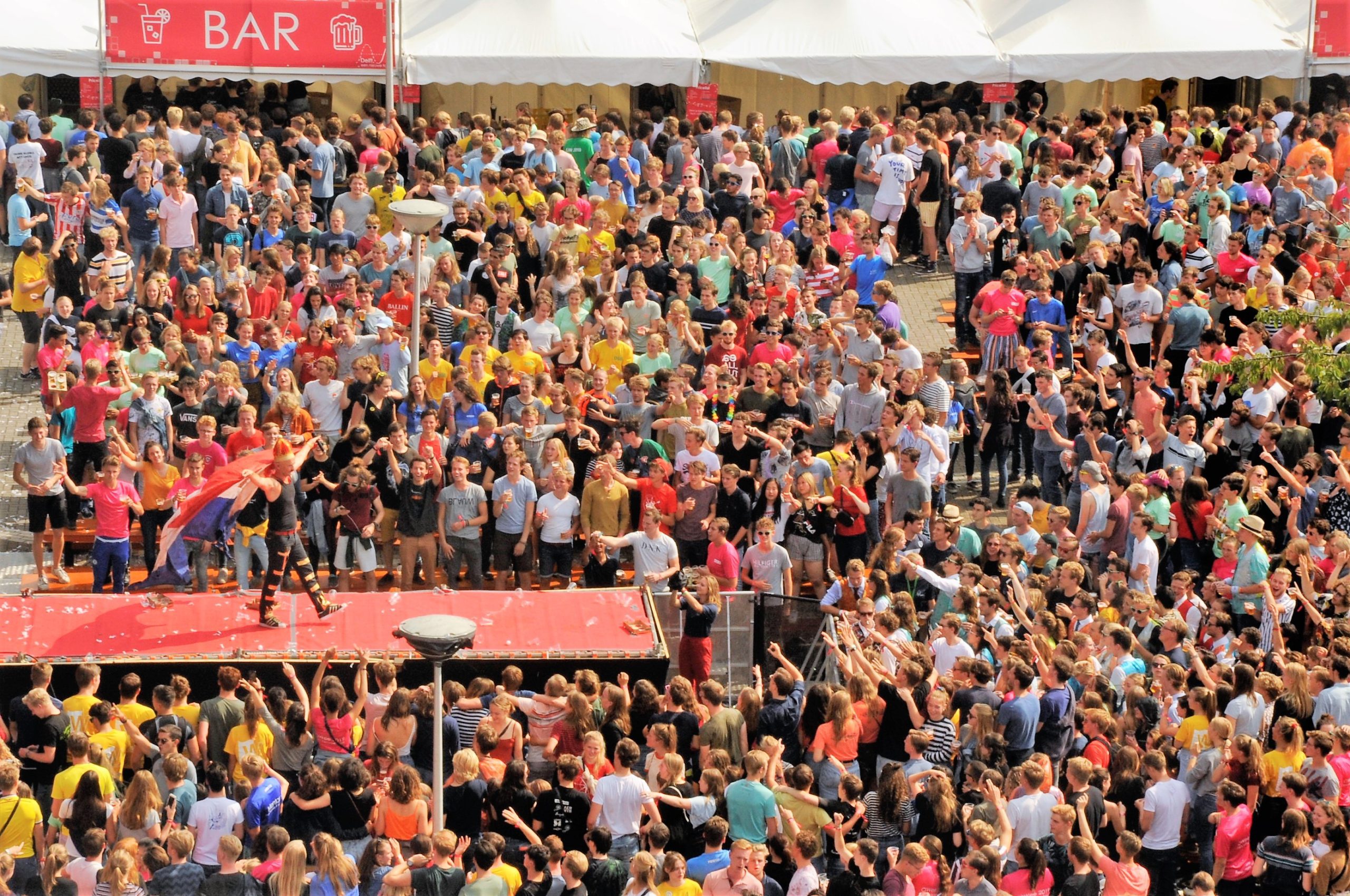Despite the fact that intake numbers are falling, TU Delft has never been bigger. A cap on student intake is justified, says the Executive Board.
New students enjoying the cantus during the OWee. (Photo: Marjolein van der Veldt)
At the beginning of this month, TU Delft had 25,106 registered students. This is 959 more than October of last year. TU Delft continues to grow by about 4%. Still, the intake of new students dropped. Last year another 7,860 students applied, while this year this figure was lower at over 7,500. These students were:
- 3,591 bachelor students, excluding switchers within TU Delft;
- 3,696 master students, most of whom came from a bachelor degree programme at TU Delft;
- 221 bridging programme students (called ‘Schakel’ in the table below).
‘We do not see any reason to do the same as Eindhoven and Wageningen’
Last year’s intake was exceptionally high because of the run on the Computer Science bachelor degree programme. The number of first year students on the programme doubled from 433 to 864. TU Delft set a cap of 500 students for this degree programme this year. This was to maintain the quality of the course and to keep the workload manageable. In mid-September, the degree programme had 488 preliminary registrations and in October, 446 first year students.
The cap on student intake has maintained the level of the intake of bachelor students. Degree programmes with a cap (architecture 400, industrial design 350, aerospace engineering 440, nanobiology 100, computer sciences 500 and clinical technology 100) are almost completely filled or even over-subscribed. “The percentages range from 95 to 110, so it was a good thing to cap the numbers,” said Executive Board member Rob Mudde during the last meeting with the Works Council.
Given additional resources from the state budget, TU Eindhoven will scrap three of its six caps (link in Dutch) on student intake. They will increase the numbers in two of the others. Wageningen University too is scrapping [LINK] (in Dutch) its cap on student intake, in this case because it did not reach the maximum number of students.
The decision to reduce these caps on student intake led to TU Delft being questioned by the Ministry of Education, Mudde told the Works Council. But he believes that the intake figures actually demonstrate the need for a cap. “We do not see any reason to do the same as Eindhoven and Wageningen,” he said during the meeting.
Do you have a question or comment about this article?
c.j.c.vanuffelen@tudelft.nl


Comments are closed.